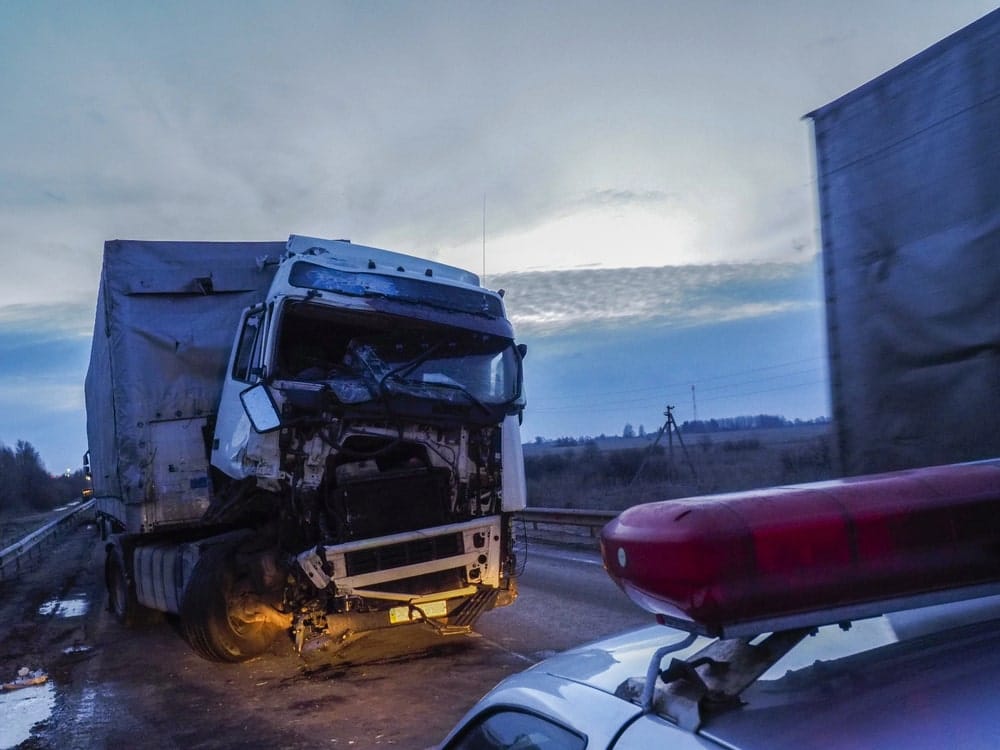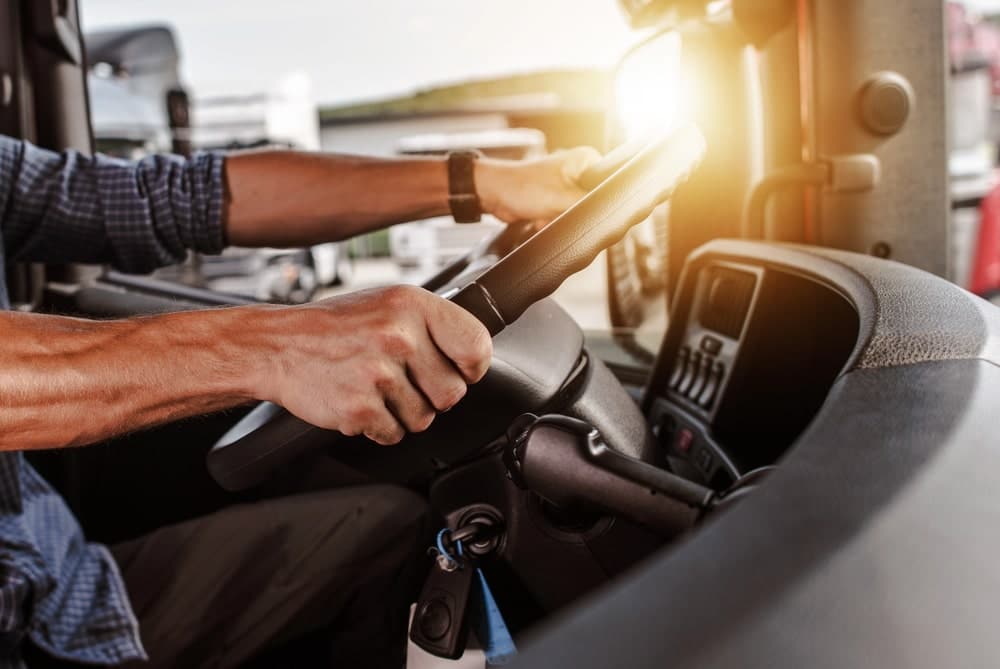Harlene Labrum | November 5, 2025 | Truck Accidents
Who Can Be Sued After a Truck Accident in Tennessee?

A truck accident in Tennessee can turn an ordinary day into a life-changing tragedy. The force of impact, severe injuries, and sudden financial stress often leave victims unsure where to turn for help. What follows is a difficult recovery that demands both medical and legal support.
Under Tennessee’s modified comparative fault rule, outlined in Tenn. Code Ann. § 29-11-107, damages are divided according to each party’s percentage of fault. Victims may still recover compensation if they are found less than 50% responsible. This rule makes identifying every liable party essential to protect your right to fair recovery.
This guide explains who may be sued, how liability is determined, and why quick action is critical. Preserving evidence and meeting legal deadlines can shape the outcome of your case. A skilled Nashville Truck accident lawyer can help you navigate this process with confidence and care.
The Truck Driver
Common Forms of Driver Negligence
Truck drivers have a legal duty to operate with care and follow federal safety rules. Common negligence includes speeding, distracted driving, or fatigue from breaking Hours-of-Service limits. These behaviors greatly increase the chances of losing control and causing serious injuries. When drugs or alcohol are involved, the risks rise sharply, and victims often face devastating outcomes.
How Liability Is Proven
After a truck accident in Tennessee, evidence is the foundation of a strong case. Electronic logbooks, dashcam footage, and police reports show patterns of recklessness or rule violations. Witness statements and cellphone records can confirm if distraction or intoxication played a role. If the driver was performing job duties, the employer may also be liable under respondeat superior. A Nashville truck accident attorney uses these findings to hold all responsible parties accountable.

The Trucking Company or Employer
Direct Negligence of the Company
Trucking companies can be directly liable when their own actions contribute to an accident. Common forms of negligence include:
- Hiring or retaining unqualified or unsafe drivers.
- Forcing unrealistic schedules that lead to violations of rest rules.
- Failing to inspect, repair, or maintain vehicles as required under federal safety standards.
Vicarious Liability and Oversight Duties
Employers are also legally accountable for the negligent acts of drivers who are performing their duties. To avoid liability, companies must:
- Monitor driver logs, maintenance reports, and compliance records.
- Enforce safety and recordkeeping standards consistently.
Neglecting these responsibilities can expose the company to both direct and indirect liability.
Vehicle Owner, Lessor, or Maintenance Contractor
Negligent Entrustment and Maintenance Failures
Truck owners and leasing firms have a duty to ensure their vehicles are safe for the road. Liability may arise when they knowingly provide a truck with mechanical defects or ignore required maintenance. Faulty brakes, worn tires, or steering failures often result from neglected inspections or skipped service schedules. When these issues cause harm, victims have the right to pursue accountability for negligence.
Documentation and Responsibility
Maintenance logs, repair records, and inspection reports reveal who was responsible for keeping the truck in safe condition. These documents show whether the owner, lessor, or maintenance contractor failed to meet legal standards of care. Shared leases or outsourced repairs can make several companies jointly liable for a crash. A personal injury lawyer in Nashville uses these records to trace negligence, assign fault, and pursue full compensation for victims.

Cargo Loaders, Shippers, and Freight Brokers
Unsafe Loading and Securement
Improper loading is one of the leading causes of truck instability and rollover crashes. Overweight or unbalanced cargo can make a vehicle difficult to control, leading to jackknifes or loss of balance on turns. When cargo is not properly secured, it may shift during transit and create deadly hazards for other drivers. Warehouse and loading crews are legally required to follow federal cargo securement rules that prevent these dangers.
Broker and Shipper Responsibility
Freight brokers and shippers share legal responsibility for ensuring cargo safety before it leaves the dock. A broker who hires an unqualified or unsafe carrier can be liable for negligence if a crash occurs. Shippers may also face claims when they overload trailers or ignore visible safety risks during preparation. Evidence such as bills of lading, scale tickets, and load diagrams reveals how and where the error happened.
Product Manufacturers and Defective Parts
Manufacturing and Design Defects
When critical components fail, even the most cautious driver can lose control of a commercial vehicle. Defective tires, brakes, or steering systems often cause catastrophic accidents that result in serious injuries. Under the Tennessee Products Liability Act (Tenn. Code Ann. § 29-28-101 et seq.), victims may hold the manufacturer or distributor accountable for selling unsafe parts. Common issues include tire blowouts, brake malfunctions, or defective coupling devices that separate trailers from cabs.
Evidence and Investigation
Mechanical defect claims rely on detailed inspections and expert analysis. Engineers and forensic specialists examine the wreckage to confirm whether a specific component failed during operation. Recalls, service bulletins, and prior complaints can help establish a pattern of negligence or unsafe production practices. Lawyers use this evidence to show that the manufacturer’s design or assembly error directly caused the collision.

Filing Deadlines and Legal Action
Statute of Limitations
Most truck accident lawsuits must be filed within one year of the crash. Failing to file within this period can permanently bar recovery, even if the evidence clearly proves fault. Acting promptly ensures that your right to seek damages remains protected.
Damages and the Importance of Acting Quickly
Victims may be entitled to several forms of compensation, such as:
- Medical expenses and rehabilitation costs
- Lost wages and loss of future earning capacity
- Property damage
- Pain and suffering
Taking legal action quickly helps preserve critical evidence — including black-box data, maintenance logs, and witness statements — before they are lost or destroyed. An experienced Tennessee attorney can evaluate your case, identify all responsible parties, and file within the required legal deadlines to secure the compensation you deserve.
Conclusion
After a truck accident in Tennessee, several parties may be held accountable, including the driver, trucking company, shipper, or manufacturer. Determining who caused the crash requires strong evidence, legal knowledge, and quick investigation. Each factor plays a vital role in building a claim that protects your rights and future recovery.
Tennessee’s comparative fault system ensures every party pays based on their share of responsibility. However, strict filing deadlines mean victims must act without delay. A truck accident attorney can guide you through every step toward fair compensation.
At Labrum Law Firm, we know how devastating a truck accident in Tennessee can be for you and your family. Our team of experienced Nashville truck accident attorneys understands the laws, the deadlines, and the tactics insurers use to minimize claims. Call us today at (615) 265-0000 for a free consultation available 24/7. Contact us now and let our firm protect your rights and guide you toward full financial recovery.

